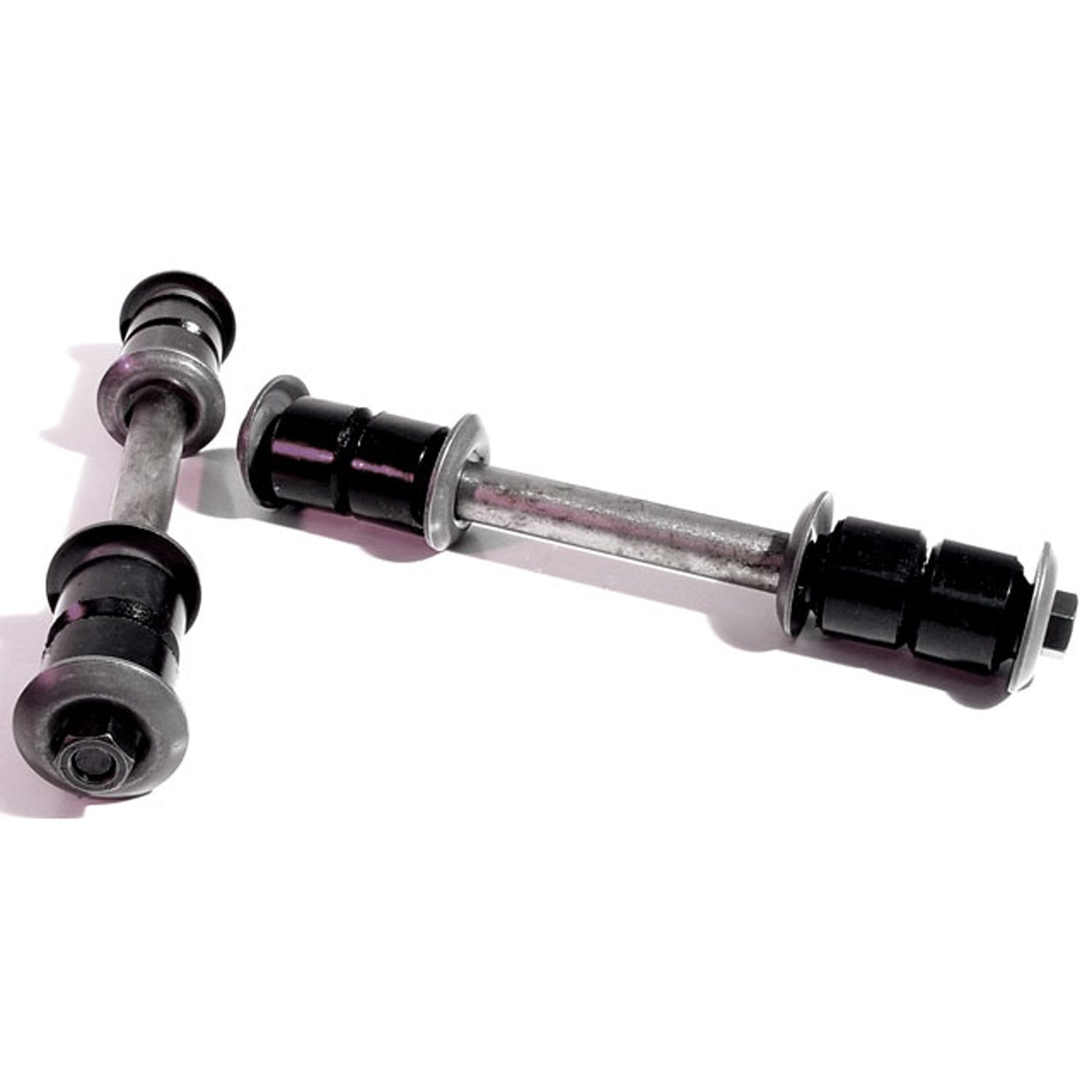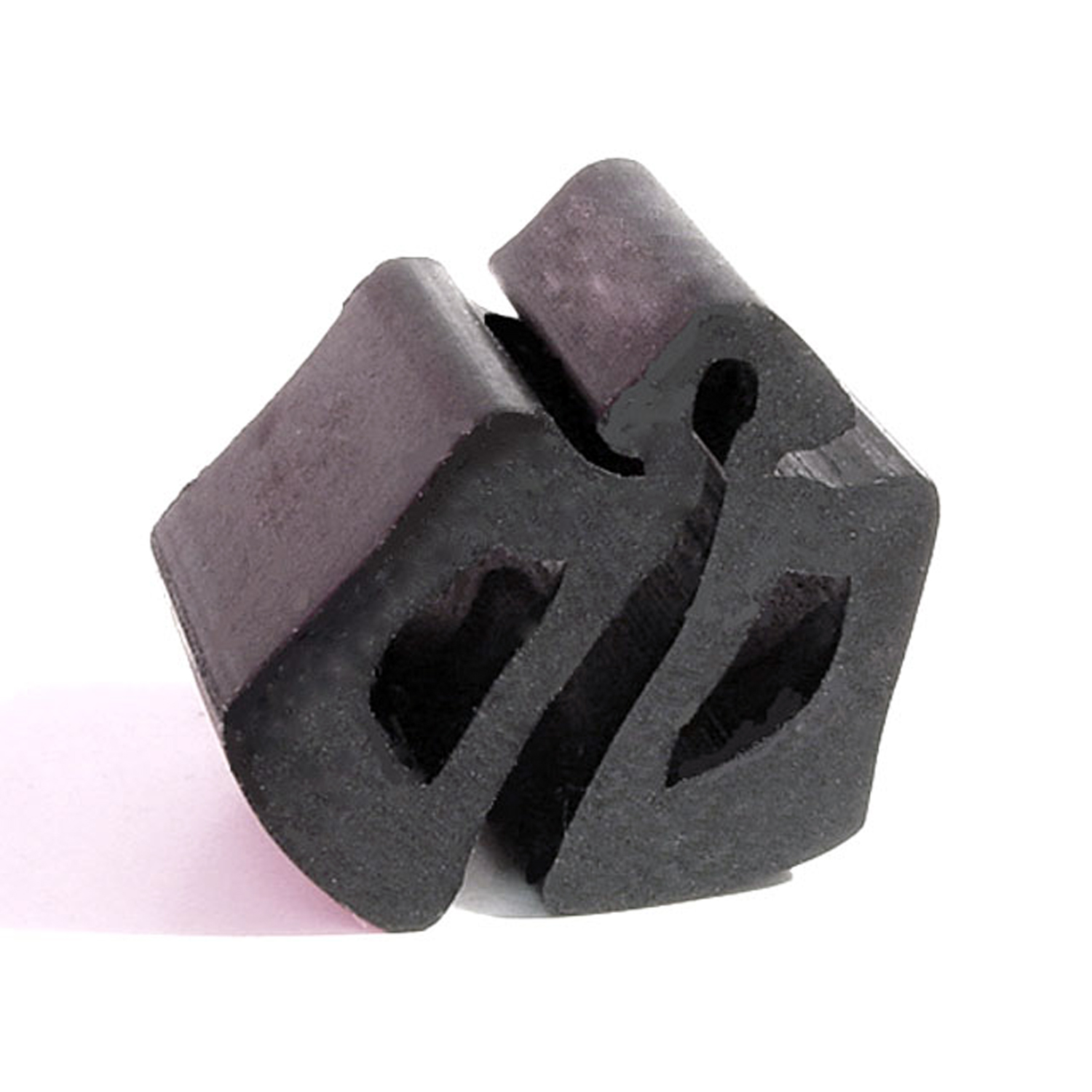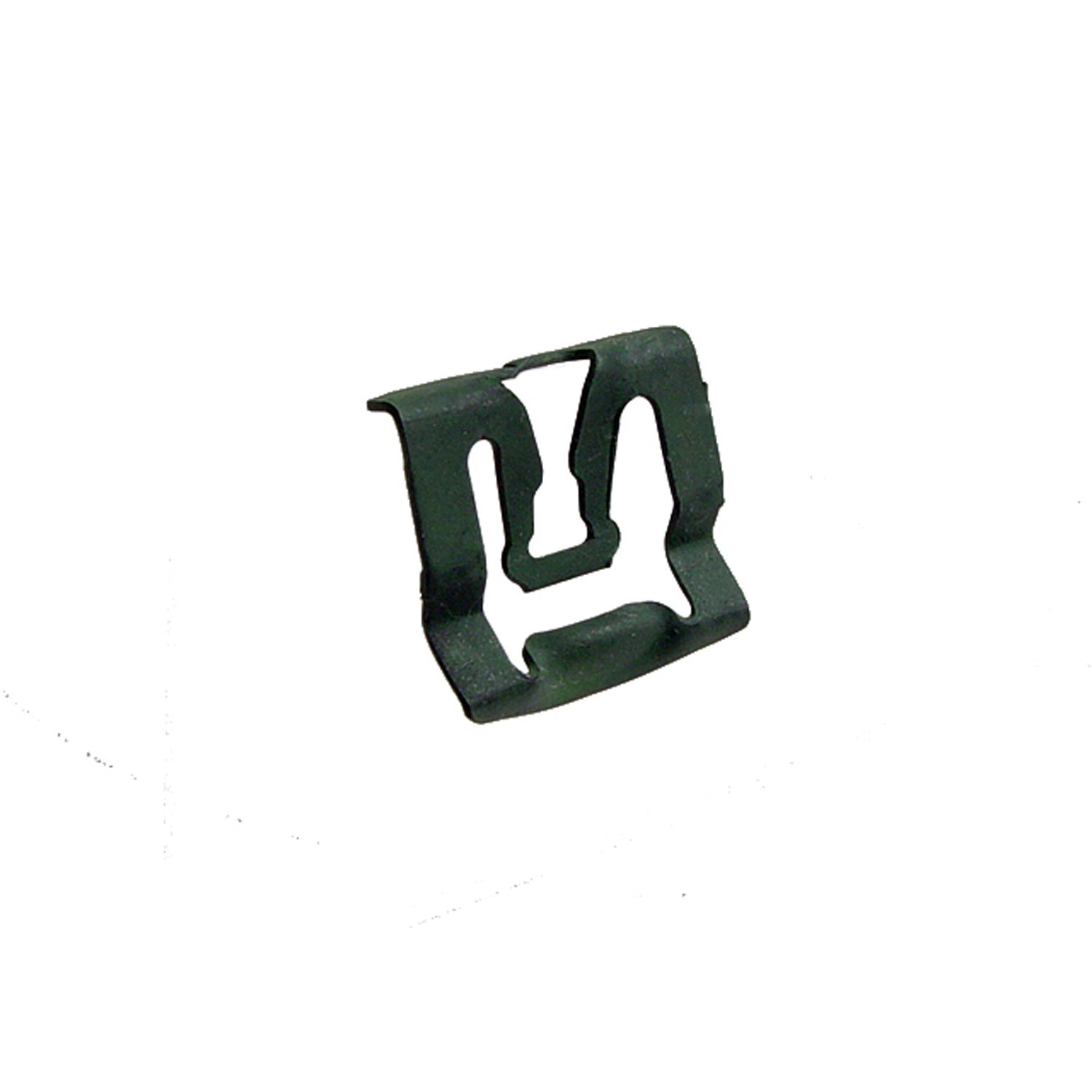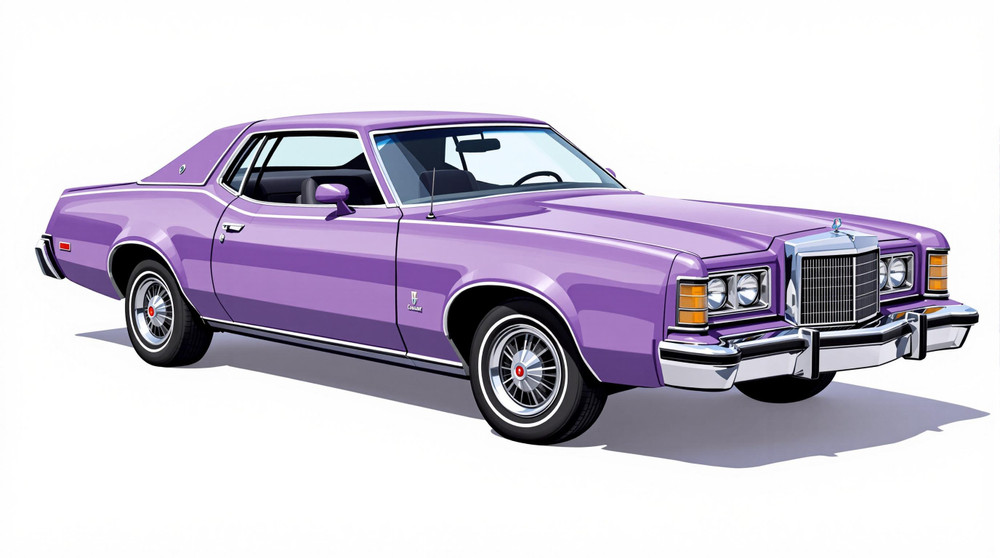Image of 1977 Mercury Cougar, Note: These illustrations use artistic license and may differ from actual historical models.
Performance Metrics
Fundamental Metrics
Emotional Appeal
MMP Rating
| Engine Specifications | |
|---|---|
| Engine: | 302 cu in (4.9 L) Windsor V8, 351 cu in (5.8 L) Windsor V8, 400 cu in (6.6 L) 335-series V8 |
| Displacement: | 302-400 cu in |
| Horsepower: | 134-173 hp |
| Torque: | 247-315 lb-ft |
| Compression Ratio: | 8.4:1 - 8.5:1 |
| Ignition System: | Electronic ignition |
| Cooling System: | Liquid-cooled |
| Performance Specifications | |
| 0-60 Time: | Estimated 10-12 seconds |
| 1/4 Mile Time: | Estimated 17-19 seconds |
| Top Speed: | 105-110 mph |
| Transmission and Drive | |
| Drive Type: | Rear-wheel drive |
| Transmission Type: | 3-speed automatic |
| Fuel and Efficiency | |
| Fuel System Type: | Carburetor |
| MPG: | Estimated 10-12 mpg |
| Dimensions and Brakes | |
| Brakes: | Front disc, rear drum |
| Wheelbase: | 114.0 in |
| Weight: | 3,600-3,800 lbs |
Note: Specifications for classic cars are given to the best of our ability, considering the limited and variant data available.
1977 Mercury Cougar: A Blend of Luxury and Muscle
The 1977 Mercury Cougar stands as a testament to an era when cars were not just modes of transportation but statements of style and personality. Born from the stables of the Ford Motor Company's Mercury division, this model marked a significant shift from its predecessors. The Cougar started as a pony car in 1967, but by 1977, it had transformed into a luxurious personal luxury coupe, reflecting the changing tastes of the American public.
This was a time when automotive design was as much about comfort and presence as it was about speed and efficiency. The Cougar's unique blend of muscle car heritage with upscale refinement made it an intriguing choice for buyers seeking the best of both worlds. One notable moment in its history was its transition to the Thunderbird platform in 1977, which brought about a larger, more luxurious vehicle that still retained its performance roots.
Design and Innovation
The exterior styling of the 1977 Mercury Cougar exuded elegance with its long hood, prominent grille, and distinctive headlight covers that gave it a slightly aggressive stance. The body lines were sleek yet muscular, suggesting power without sacrificing sophistication. Inside, passengers were greeted with plush seating and an array of wood-tone accents that elevated the cabin's ambiance. Materials used ranged from durable fabrics to optional leather upholstery, ensuring comfort was never compromised.
For its time, the Cougar boasted technological features such as optional power windows and seats, air conditioning, and even an available Quadrasonic 8-track stereo system. Color options varied widely, with Dark Jade Metallic and Light Chamois being among the popular choices that complemented the car's luxurious appeal.
Buyers could choose between different body styles including the two-door coupe and XR-7 luxury variant. The XR-7, with its opera windows and more elaborate trim package, became particularly iconic among enthusiasts.
Historical Significance
The 1977 Mercury Cougar's impact on automotive design was profound; it bridged the gap between raw power and refined elegance. It stood apart from contemporaries by offering a unique combination of American muscle car performance with near-luxury trappings—a precursor to today's luxury sports coupes.
Performance and Handling
Underneath its hood, the standard Cougar came equipped with a respectable 302 cubic inch V8 engine while options included a more powerful 351 cubic inch V8. Performance figures were modest by modern standards but competitive for the time, with acceleration from 0-60 mph taking around 11 seconds. Handling was tuned more for comfort than cornering agility; however, drivers could still enjoy a smooth ride that absorbed bumps with ease.
The driving experience of the '77 Cougar was characterized by a sense of grandeur—the rumble of the V8 engine at idle, the gentle float over road imperfections, and a sense of detachment from the frenetic pace outside.
Ownership Experience
While some owners cherished their Cougars as daily drivers or show cars, others enjoyed them in amateur drag racing events. Maintenance on these vehicles is relatively straightforward thanks to their commonality with other Ford products of the era, making parts availability less of an issue than for some contemporaries.
Fun Facts
A fun fact about this generation of Cougars is that they shared many components with Ford's Thunderbird—so much so that they were often referred to as "luxury Thunderbirds." While not known for setting speed records or dominating sales charts like some muscle cars did in their heyday, they carved out a niche among buyers who wanted something different from the norm.
Critics often pointed out that by becoming larger and more luxurious, the Cougar had strayed from its performance roots. However, fans appreciated this evolution as it reflected changing consumer preferences during that period.
Collector's Information
Today, collectors find value in well-preserved or restored Cougars due to their unique position in automotive history. While exact production numbers vary by source, it is estimated that tens of thousands were produced during this model year alone. Current value ranges can be quite broad—anywhere from $5,000 for a model in fair condition to over $20,000 for one in pristine condition or with desirable options.
As appreciation for '70s-era vehicles grows among collectors, prices for models like the '77 Cougar are slowly appreciating—especially for well-maintained examples or those with significant provenance.
Conclusion
The 1977 Mercury Cougar remains an intriguing chapter in automotive history—a blend of American muscle heritage with a newfound appreciation for luxury and comfort. Its significance lies not just in its design or performance but also in what it represented: an adaptable industry responding to changing consumer desires. For those who own one today or seek to acquire one, it offers a slice of nostalgia wrapped in leather and steel—a true classic in every sense.
1977 Mercury Cougar Catalog of Parts
 1977 Mercury Cougar Front Stabilizer End Repair Kit-BNK 21Front Stabilizer End Repair Kit. 22-piece set for two stabilizer bars. Contains all rubber bushings, washers, bolts and nuts, enough for one front end. Set
1977 Mercury Cougar Front Stabilizer End Repair Kit-BNK 21Front Stabilizer End Repair Kit. 22-piece set for two stabilizer bars. Contains all rubber bushings, washers, bolts and nuts, enough for one front end. Set 1977 Mercury Cougar Hood Bumper. Each-HF 2Hood Bumper. Each
1977 Mercury Cougar Hood Bumper. Each-HF 2Hood Bumper. Each 1977 Mercury Cougar Windshield Reveal Molding Clip. Made of steel. Each-WF 228-AWindshield Reveal Molding Clip. Made of steel. Each
1977 Mercury Cougar Windshield Reveal Molding Clip. Made of steel. Each-WF 228-AWindshield Reveal Molding Clip. Made of steel. EachWhy Choose Metro?
For over 100 years, Metro Moulded Parts has been the pinnacle of quality in classic car restoration parts. Our commitment to precision and authenticity in every component ensures a perfect fit and an OEM-level appearance.
- Expert Craftsmanship & Quality: Each part is a testament to our dedication to reliability and perfection, crafted from original designs and thoroughly tested.
- Advanced Technology: We use cutting-edge techniques to create flawless, long-lasting parts that surpass others in performance.
- SuperSoft Sponge – The Ultimate Door Seal: Not only are our door seals 30% softer than competitors', but they're also guaranteed to never leak. They effectively reduce wind and road noise, enhancing your classic car's comfort and driving experience.
- Proudly American: Our parts are a product of American craftsmanship, made in the USA with a spirit of excellence and heritage.
- Unrivaled Warranty: We back our products with a 30-year industry-leading warranty, a testament to our confidence in their quality.
Join us in preserving the legacy of classic cars with parts that are crafted for perfection, not just made.

